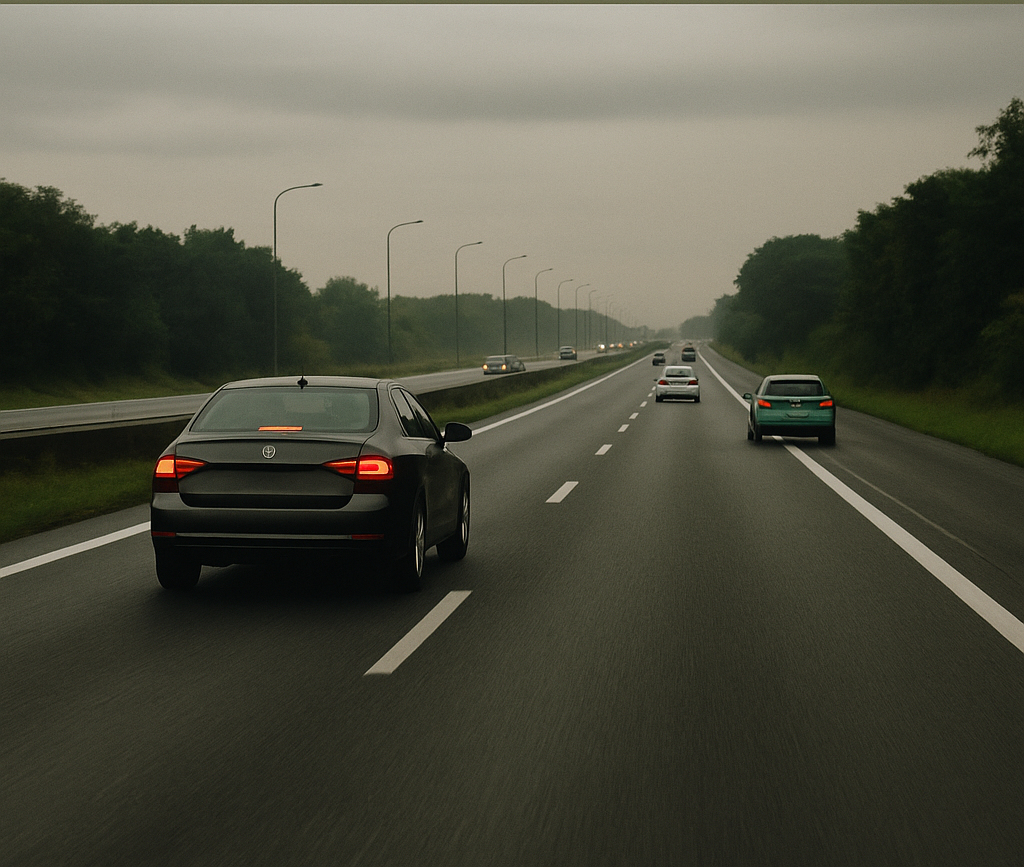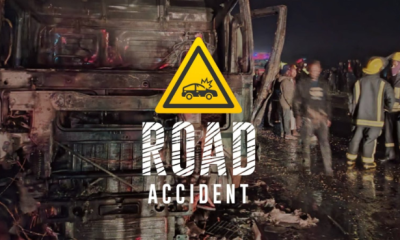Driver Training
Why Impatience Behind the Wheel Is Nigeria’s Silent Road Killer

Every day across Nigeria’s highways, impatience claims lives not with the roar of a gun, but with the reckless hum of an engine.
Also Read: How Fake Drivers, Bribes, and Bureaucracy Endanger Every Road User
In Lagos, Abuja, Port Harcourt, and even rural towns, drivers fight for seconds as if their survival depends on arriving first. But in truth, this obsession with speed and disregard for caution has turned impatience into one of the most silent killers on our roads.
Recent reports from the Federal Road Safety Corps (FRSC) show that over 35% of all fatal crashes recorded between January and September 2025 were linked to impatient or aggressive driving behavior. Behind those numbers are shattered families, broken vehicles, and preventable deaths, tragedies born out of frustration, ego, and poor road culture.
Why do so many Nigerian drivers lose control of their emotions behind the wheel? Psychologists say impatience is often triggered by a perceived loss of control, traffic jams, slow drivers, or policemen demanding bribes can ake people feel powerless.
Behind that wheel, a driver suddenly feels entitled to reclaim control by overtaking dangerously, speeding through intersections, or honking relentlessly.
For commercial drivers, the story is often economic. Every minute spent in traffic means less income, especially for bus drivers who depend on passenger volume.
For private drivers, it’s ego. For truckers, it’s pressure from logistics companies. Whatever the reason, impatience thrives in Nigeria’s road culture because time has become more valuable than life itself.
Scenes of Impatience Turned Tragedy
On May 14, 2025, along the Benin–Ore Expressway, a fully loaded Toyota Sienna attempted to overtake two trucks simultaneously. The driver, in a rush to “beat” a checkpoint delay ahead, misjudged the space. He crashed head-on into an oncoming petrol tanker. Within seconds, the vehicle burst into flames, six passengers, including a pregnant woman, were burned beyond recognition.
In Abuja’s Nyanya–Mararaba corridor, FRSC officers recorded 214 road incidents in the first half of 2025 alone. Most involved impatient drivers making illegal U-turns or refusing to yield. Each of those incidents could have been avoided with a single decision: waiting an extra minute.
Impatience and the Nigerian Road Culture
Let’s be honest, Nigerian roads are a battlefield of temperaments. From the impatient danfo driver to the agitated Bolt rider, everyone seems to be in a race against time. Horns blare like war sirens; insults fly like debris.
But impatience isn’t just an individual flaw, it’s a systemic reflection of poor planning, poor infrastructure, and low emotional intelligence.
When traffic lights fail, when police checkpoints are chaotic, when road potholes force detours, drivers begin to see civility as weakness. The average motorist feels that being “too calm” means losing out. Thus, recklessness becomes normalized.
FRSC’s Stand: Speed and Impatience Are the New Epidemics
The Corps Marshal of the FRSC, Dauda Biu, has repeatedly emphasized that driver impatience is now a greater threat than vehicle malfunction.
According to him, “The majority of our fatal crashes are not caused by bad roads or faulty cars, but by human error and impatience tops the list.”
In July 2025 alone, the FRSC recorded over 2,400 speed-related crashes, resulting in nearly 1,100 deaths nationwide. The Corps has since launched campaigns targeting commercial transport unions, emphasizing calm driving and emotional control. But progress remains slow.
Economic Pressures Feeding Impatience
A deeper look reveals the link between Nigeria’s struggling economy and the rise in impatient driving. Many commercial drivers, keke operators, and dispatch riders operate on daily returns. They must meet targets or lose their jobs. Every delay, therefore, feels like a threat to survival.
The transport industry, heavily informal, offers little protection or structure. No hourly wages, no accident insurance, only daily hustle. So drivers rush through traffic lights, overload vehicles, and risk lives to complete “one more trip” before dusk.
It’s not just recklessness; it’s desperation wearing a steering wheel.
How Technology Could Curb the Madness
In developed nations, technology has become a key ally in reducing road rage and impatience.
Dashcams, automatic speed limiters, and digital driver scoring systems help hold motorists accountable.
Nigeria is slowly catching up ride-hailing companies now use in-app speed trackers to flag reckless drivers. Fleet managers also deploy GPS tracking systems to monitor speed and driving patterns.
But much more can be done.
Imagine if every commercial bus in Lagos had a dashboard display showing the driver’s current speed and a warning when it exceeds limits. Or if the FRSC implemented a nationwide driver behavior database, linking poor driving records to license renewal restrictions.
The Role of Public Enlightenment
At the core of this epidemic is ignorance. Many drivers don’t understand the physics of impatience that speed multiplies impact force, that one second of rash decision can destroy ten lives.
Public campaigns, therefore, must go beyond billboards and jingles. Nigeria needs emotional reorientation on the roads.
FRSC, NGOs, and schools should integrate driver behavior education into civic studies and youth programs.
Because impatience doesn’t begin on the road, it begins in the mind.
How Drivers Can Control Impatience
Here are tested strategies every motorist can apply to stay calm behind the wheel:
- Leave early — most impatience comes from running late.
- Accept delays — traffic is part of urban life; frustration won’t change it.
- Breathe — when anger rises, take deep breaths and count down before reacting.
- Play calming music or podcasts — your mood determines your driving tone.
- Never chase — if another driver provokes you, resist the urge to retaliate.
- Use cruise control when possible — it helps you maintain a steady, safe pace.
- Remember your family — every risky move endangers those waiting for you.
Nigeria’s impatience problem is not just a traffic issue, it’s a national mirror. It reflects how society values speed over substance, reaction over reflection. Until we learn to wait, yield, and respect time as shared, not personal, the roads will continue to demand blood as payment for our haste.
Conclusion: Slow Down to Stay Alive
Every driver must understand this truth arriving late is better than never arriving.
Impatience is not a badge of skill; it’s a symptom of chaos.
The road is not a race; it’s a shared space where patience is power and calmness is courage.
As RoadKing.ng continues to advocate for safer roads and responsible driving culture, we echo the FRSC’s timeless warning:
“Speed thrills, but it also kills.”
The next time you feel that surge of impatience while driving, remember: someone’s life, maybe yours, depends on what you do next.























